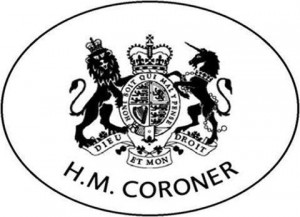
By John Pring Disability News Service October 28th 2016
A leading psychiatrist who helped the government draft guidance that protected mental health service-users who were threatened with forced work has refused to criticise major changes to the guidelines that have risked the lives of thousands of benefit claimants.
Disability News Service (DNS) reported last month that the Department for Work and Pensions (DWP) had secretly made major changes that watered-down guidance given to “fitness for work” benefits assessors, and then “lied” about what it had done.
Ministers appear to have decided that it was worth risking the loss of some lives in order to cut benefits spending and force more disabled people into their discredited back-to-work programmes.
The guidance explains how assessors should translate employment and support allowance (ESA) regulations 29 and 35, which concern whether decisions to find someone fit for work or able to carry out work-related activity would cause a substantial risk of harm to an ESA claimant.
A DWP response to a freedom of information request, obtained by DNS this week, shows that new guidance was sent out to healthcare assessors working for the discredited US outsourcing giant Maximus in early December last year.
The month after the new guidance was sent out, the proportion of claimants placed in the support group of ESA – and therefore not forced to take part in work-related activity – began to fall sharply.
For claims completed in December 2015, 56 per cent were placed in the support group; the following month that fell to 48 per cent, and then to 33 per cent in February, and 33 per cent again in March.
The previous version of the guidance, published as DWP’s Work Capability Assessment Handbook in February 2015, included six indicators of “substantial risk”, which were marked “D” for “definitive” – including someone who was currently sectioned, who had active thoughts of suicide, or had had a documented episode of self-harm requiring medical attention in the last 12 months – to show that that person should be placed in the ESA support group.
But the latest edition of the guidance says only that such indicators “might” give rise to a substantial risk in “exceptional circumstances”.
The new version of the handbook also tells assessors that they should consider factors that might “mitigate” the chance that someone could harm themselves or others, including “the benefits of employment weighed against any potential risk”.
The previous version of the guidance was written by DWP with “external input” from Professor Peter White, a consultant psychiatrist at St Bartholomew’s Hospital in London, and Professor Keith Hawton, director of the University of Oxford’s Centre for Suicide Research.
But their names do not appear in the new, watered-down guidance.
White has refused to comment on the new guidance, and the risks that it might pose to people in severe mental distress, and instead referred DNS to a named DWP press officer.
A DWP spokeswoman said later that White “was involved in early discussions about the revised guidance but neither he, nor Hawton, played any subsequent role in its drafting or sign off”.
DNS has been unable to contact Hawton directly, although messages have been left with his personal assistant and via email.
The DWP spokeswoman added: “We in no way asked either Professor Hawton or Professor White not to comment on the new guidance.
“It is for them to decide on whether they wish to engage with media.”
John McArdle, co-founder of Black Triangle, said he found their silence to be “inexplicable” and “deeply alarming”.
He said: “In the case of Professor Hawton, he is a world-leading expert in suicide prevention and one would have expected him to have something to say about the change in this guidance which will irrefutably lead to an increase in the suicide rate among claimants.
“Both professors have a duty to speak out.”
McArdle said the new guidance was giving assessors “permission to refuse benefits to people who have exhibited suicidal ideation in terms of regulations 29 and 35, and we believe that is unlawful and not human rights-compliant”.
In April, DNS obtained a DWP document which suggested amending or removing regulations 29 and 35 as one of several policy proposals, and said that such a move would provide substantial savings.
But the memo – drawn up before the 2015 election, and to be used if the Conservatives triumphed at the polls – warned that previous attempts to remove the regulations had been defeated in the courts, and that any changes in this area “carry a significant handling and delivery risk” because they would be “perceived as restricting application of the safeguards and may be considered discriminatory”.
DWP’s press office have insisted that these “speculative policy formulations” were drafted by staff before the last election and “have not been raised, do not represent government policy and have never been sent to ministers”.
But comparing the latest handbook with the version issued before the 2015 election shows the regulations were amended, although by changing the guidance rather than the rules themselves.
DWP had failed to comment by 11am today (Thursday) on whether the new guidance was the reason for the fall in the proportion of claimants placed in the support group, and how it justified watering down the guidance when it was designed to stop people self-harming and taking their own lives.

No responses yet